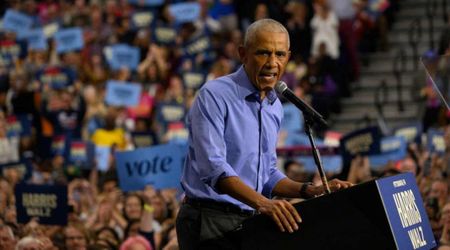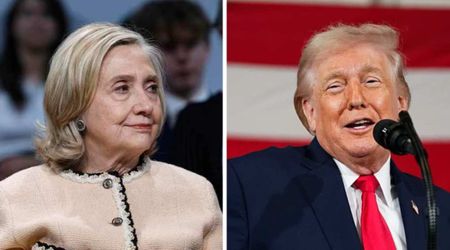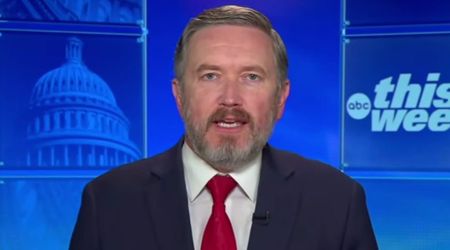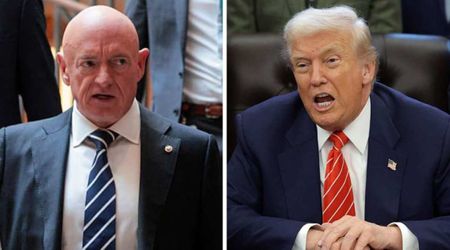JD Vance’s past criticism of Trump’s trade policies comes back to haunt him after he praises new tariffs

WASHINGTON, DC: Vice President JD Vance is facing backlash on social media after his past comments criticizing President Donald Trump's trade policies resurfaced, the Irish Star reported on Friday, April 4.
POTUS announced sweeping 'reciprocal' tariffs on approximately 90 nations across the world on Wednesday that left the stock market reeling in its wake, reportedly evaporating more than $6 trillion in the following days.
“It’s our declaration of economic independence,” Trump claimed during his announcement. "Jobs and factories will come roaring back into our country, and you see it happening already."
However, as the immediate effect was far from ideal, his closest allies had to rush to his defense, with Vance telling rightwing broadcaster Newsmax on Thursday, "We’re feeling good. Look, I frankly thought in some ways it could be worse in the markets because this is a big transition."
NEW: JD Vance calls tariffs key to reviving manufacturing. But from 2016–2017 he said automation—not trade—was to blame for job losses, “hyper protectionist” policies wouldn’t bring jobs back, and based Trump’s trade ideas.
— Andy Kaczynski (@KFILE) April 4, 2025
https://t.co/rO7RACMMRa pic.twitter.com/4x8Kg2suf7
JD Vance's past comments on Donald Trump's economic policies
While JD Vance has been supportive of Donald Trump's economic policies of late, that has not always been the case. He was a vocal critic of the incumbent during his first term in office between 2016 and 2019 and argued that “hyper protectionists” and their trade policies would not help return manufacturing jobs to the United States.
In an interview with Education Week in January 2017, Vance stated, “So many of these jobs that have disappeared from these areas just aren’t coming back. They haven’t disappeared so much from globalization or from shipping them overseas. They’ve largely disappeared because of automation and because of new technological change."
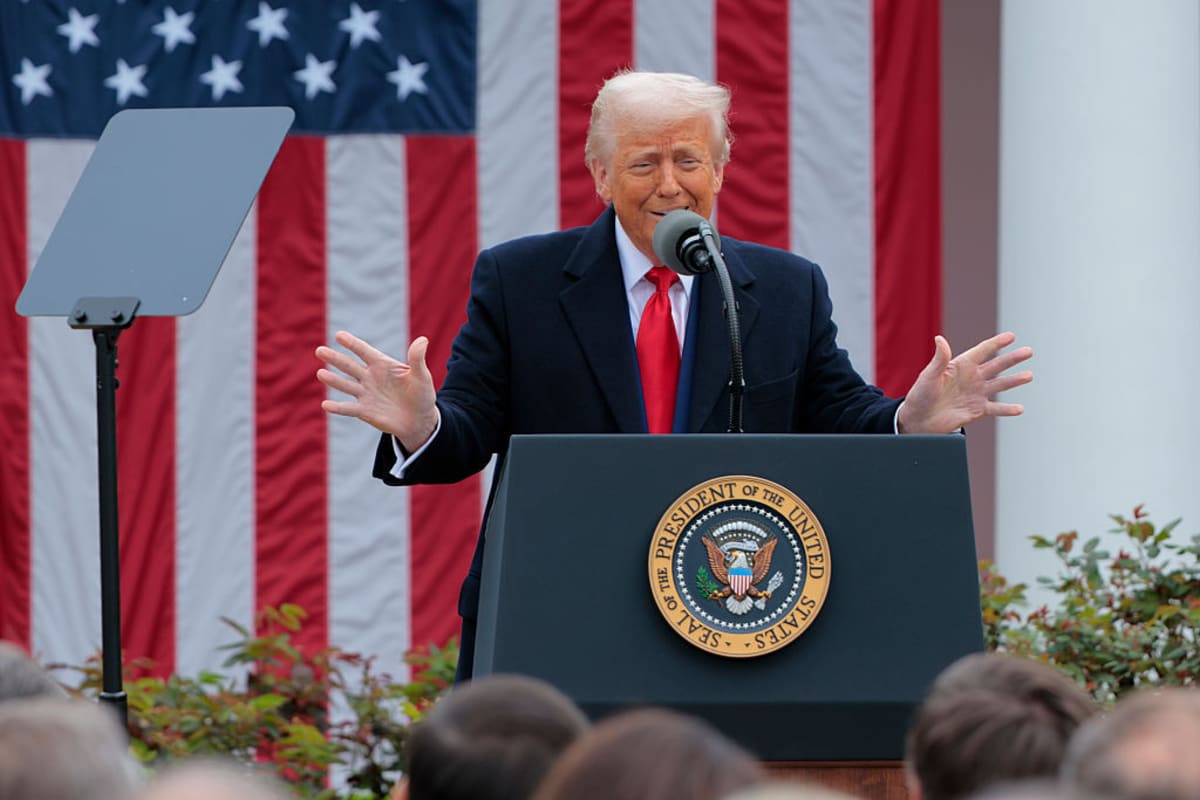
The following month, he called out Trump after he met with manufacturing CEOs, writing on social media, "Can’t be repeated enough: if you’re worried about America’s economic interest, focus more on automation/education than trade protectionism."
“The fundamental issue with American jobs and manufacturing right now is not that all of our jobs have gone to Mexico and China, it’s that they’ve been auto–automated. It’s that mechanization has sort of reduced the manufacturing work base,” Vance expressed in 2016. "There is a solution to that problem. It’s to train people for the next level of jobs, to train people for the 21st century workforce.”
His outlook began to shift in 2019 and completely changed in 2021 when he ran for the Senate from Ohio as a Trump-endorsed candidate.

Internet blasts JD Vance over past comments
Netizens on the social media platform X trolled JD Vance for changing his stance on economic policies to fall in line with Donald Trump and his MAGA agenda, even when it is demonstrably hurting the present economy. The following tweets demonstrate their takes.
"Facts are transient with this administration," wrote a user.
"It reminds me of a guy I knew who blamed his treadmill for not losing weight—then when he ran for office, he blamed the salad. The story changes, but the finger never points inward," shared another.
It reminds me of a guy I knew who blamed his treadmill for not losing weight—then when he ran for office, he blamed the salad. The story changes, but the finger never points inward.
— Last Day With You (@Last_DayWithYou) April 4, 2025
"Vance has no idea what he's talking about," jibed a third.
"Vance is like a weather vane. You can’t trust him," chided a fourth.
"Craven opportunist twisting in the breeze from the Trump windbag," quipped a fifth.
Craven opportunist twisting in the breeze from the Trump windbag.
— Marg K (@acerbic_comic) April 4, 2025
This article contains remarks made on the Internet by individual people and organizations. MEAWW cannot confirm them independently and does not support claims or opinions being made online.



